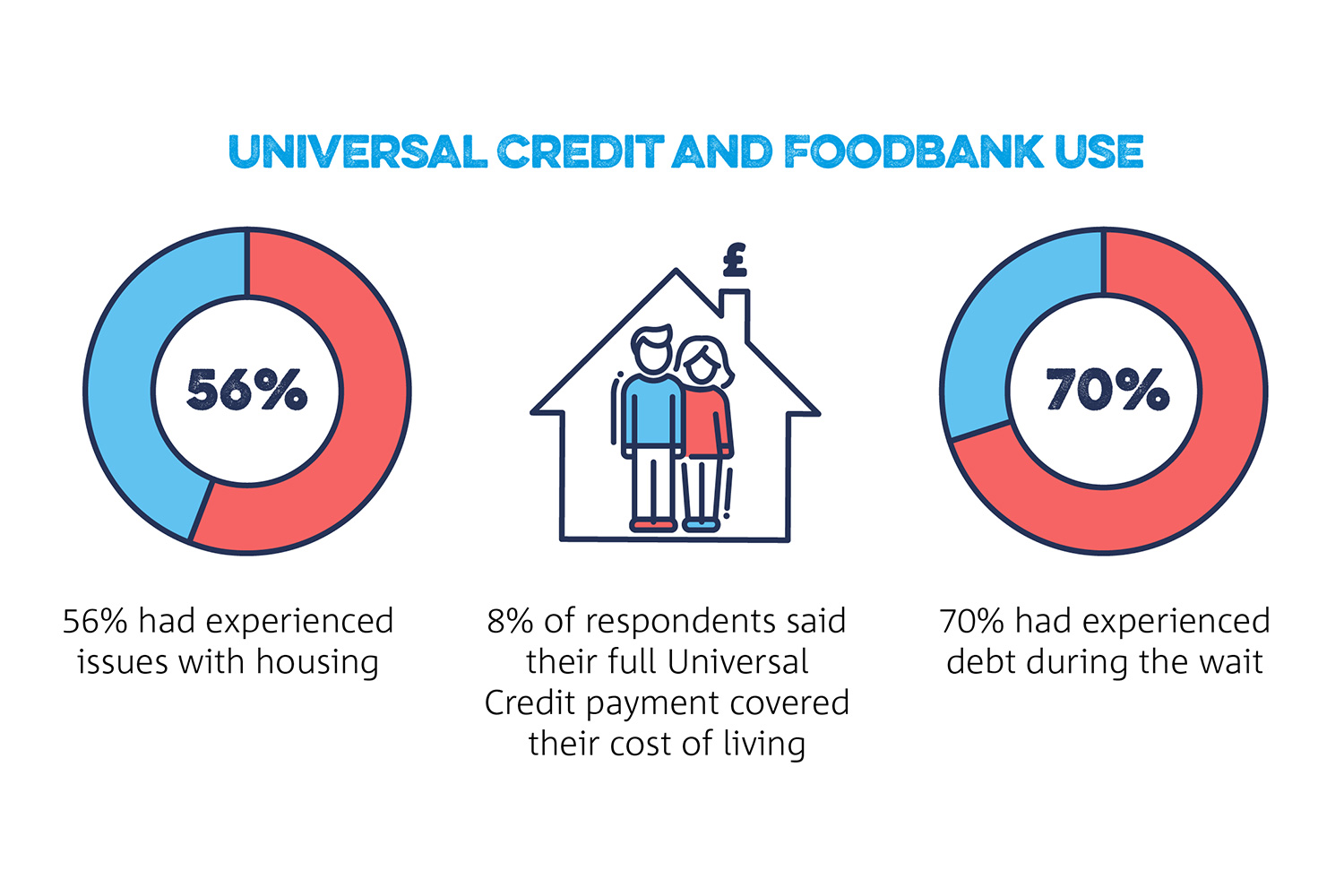Responding to the National Audit Office report about the roll out of Universal Credit, Emma Revie, Chief Executive of The Trussell Trust, said,
“No one should need to turn to a foodbank. Our benefits system was built to end hunger and destitution – Universal Credit can and must continue that legacy, but if it is to do so we need payments to cover the cost of essentials, more support in place for groups of people most likely to need a foodbank, and debt advice to be offered to everyone moving onto the new system.
“Foodbanks have seen firsthand the impact on people faced with the unavoidable side effect of increasing debt, right at the very moment when there is little or no money coming in at all: young families facing eviction, working parents skipping meals, and single men with insecure work struggling to afford the bus fare to work.
“We’re a country that prides itself on making sure proper support is in place for each other whenever help is most needed, whether that is through our health service or benefits system – what is clear from the NAO today is that more must be done, and urgently, before Universal Credit can be seen as part of this tradition.”
Recent analysis of foodbank data found foodbanks in The Trussell Trust network that have been in full UC rollout areas for a year or more have seen a 52% average increase in use the twelve months after the full rollout date. Foodbanks not in full UC areas, or only in full rollout for up for three months, showed an average increase of 13%.
This chimes with the findings of the NAO, which found that in 3 of the 4 areas they visited, the use of foodbanks increased more rapidly after UC full service was rolled out in the area.
For more about Universal Credit and foodbank use click here.



